|
|
Felix Weingartner (Conductor,Composer, Piano, Arranger) |
|
Born: June 2, 1863 - Zara, Dalmatia, Austria–Hungary (now Zadar, Croatia)
Died: May 7, 1942 - Winterthur, Switzerland |
|
Life |
|
Paul Felix von Weingartner, Edler von Münzberg was an Austrian conductor, composer and pianist. He was born in Zara, Dalmatia, Austria-Hungary to Austrian parents, and the family moved to Graz in 1868. His father died that same year. He studied with Wilhelm Mayer (who used the pseudonym of W. A. Rémy and also taught Ferruccio Busoni) and in 1881 went to Leipzig to study philosophy, but soon devoted himself entirely to music, entering the Conservatory in 1883 and also studying under Franz Liszt in Weimar: he was among F. Liszt's later pupils.
F. Liszt helped produce Felix Weingartner's opera Sakuntala for its world premiere in 1884 with the Weimar orchestra. According to the F. Liszt biographer Alan Walker, the Weimar orchestra of the 1880’s was far from its peak of a few decades earlier - and the opera performance ended with orchestra going one way and chorus another. Walker sources this to Weingartner's autobiography, published in Zürich and Leipzig in 1928-1929. The same year, 1884, he became the director of the Königsberg Opera. From 1885 to 1887 he was Kapellmeister in Danzig, then until 1889 in Hamburg, and until 1891 in Mannheim. From 1891 he was Kapellmeister of the Royal Opera and conductor of symphony concerts in Berlin; he resigned from the Opera, though continuing to conduct the Symphony concerts, and settled in Munich, where he incurred the enmity of Rudolf Louis and Ludwig Thuille.
In 1902, at the Festival of Mainz, Felix Weingartner conducted the complete symphonies of L.v. Beethoven. From 1908 to 1911 he was the principal conductor of the Vienna Hofoper succeeding Gustav Mahler; he retained the conductorship of the Wiener Philharmoniker until 1927. From 1912 he was again Kapellmeister in Hamburg, but resigned in 1914 and went to Darmstadt as general music director. He also frequently conducted for the Boston Opera Company between 1912-1914. In 1919-1920 he was conductor of the Vienna Volksoper. In 1920 he was Professor of the Franz Liszt Academy in Budapest. From 1927 to 1934 he was Music Director of the Sinfonieorchester Basel. He gave his last concert in London in 1940 and died in Winterthur, Switzerland two years later.
As a conductor, Felix Weingartner was the first to make commercial recordings of all nine L.v. Beethoven symphonies. In 1935 he conducted the world premiere of Georges Bizet's Symphony in C.
Among his students as a conductor were Paul Sacher, Charles Houdret, Georg Tintner and Josef Krips.
Weingartner was married five times, to Marie Juillerat (in 1891), Baroness Feodora von Dreifus (1903), the mezzo-soprano Lucille Marcel (1912; she died in 1921), the actress Roxo Betty Kalisch (1922), and Carmen Studer (1931). |
|
Composer and editor |
|
Despite his lifelong career as a conductor, Felix Weingartner regarded himself as equally, if not more importantly, a composer. Besides numerous other operas, he wrote seven symphonies which are being recorded, with his other orchestral music, by CPO, Germany, a sinfonietta, violin concerto, cello concerto, orchestral works, at least four string quartets, quintets for strings and for piano with clarinet and other pieces including a great many lieder for voice and piano, one of which, Liebesfeier (text: Lenau) achieved a status as his most famous short work, in effect a "hit". Weingartner's choice of verse for his songs mirrors that of his contemporary composers: Max Reger, Joseph Marx, Richard Trunk and Richard Strauss.
His musical style, notably very generous, indeed rather valuable in its rather Schubertian melodic interest, is of its time: an amalgam of late Romanticism and early Modernism, comparable with those of his contemporaries Richard Strauss, Gustav Mahler, Franz Schreker and Alexander von Zemlinsky. His idiom left some marks on Erich Wolfgang Korngold, whose precocious Sinfonietta is dedicated to Weingartner, who conducted its first performance. His Third Symphony was intended both as a message of love to Lucille Marcel and a reply to the many critical attacks on him in Vienna; the finale reaches a climax in a parody of the waltz from Johann Strauss II's Die Fledermaus. Similarly, he managed to finish his Fifth Symphony in time for Roxo Betty's birthday, a trend in romantic attachment which may attract at least passing notice, for he was thus a very dedicated bridegroom in his deployment of manuscript paper.
Felix Weingartner edited the complete works of Hector Berlioz (he once called Berlioz the "creator of the modern orchestra") as well as the operas Joseph by Méhul and Oberon by Weber, and individual works of Gluck, Wagner and others. He also made orchestral versions of piano works such as L.v. Beethoven's Hammerklavier Sonata, Weber's Invitation to the Dance, and G. Bizet's Variations chromatiques. Before Brian Newbould's more recent work, in 1934, he made a performing version of Schubert's Symphony No. 7 in E major, D. 729, that has received some performances and recordings; he also arranged works by a number of early Romantic masters for orchestral performance. |
|
Writings and interests |
|
Felix Weingartner was early interested in the occult, astrology, and Eastern mysticism, which influenced his personal philosophy and his music to some extent. He was himself a prolific writer who published a poetical drama, Golgotha, in 1908. He wrote copiously on music drama, on conducting, on the symphony since L.v. Beethoven, on the symphonies of L.v. Beethoven, Schubert and Schumann as well as on art and esoteric subjects. Two collections of essays were Musikalische Walpurgisnacht (1907) and Akkorde (1912). He also published an autobiography, Lebenserinnerungen in 1923. |
|
Compositions |
|
Piano:
Skizzen, Op. 1
Tonbilder zu Adalbert Stifters Studien, Op. 2
Aus vergangener Zeit, Op. 3
Lose Blätter, Op. 4
Phantasiebilder, Op. 5
Herbstblätter, Op. 58
Chamber music:
Sonata No. 1 for Violin & Piano, Op. 42/1
Sonata No. 2 for Violin & Piano, Op. 42/2
String Quartet No. 1 in D minor, Op. 24
String Quartet No. 2 in F minor, Op. 26
String Quartet No. 3 in F major, Op. 34
String Quartet No. 4 in D major, Op. 62
String Quartet No. 5 in D major, Op. 81
String Quintet, Op. 40
Piano Sextet in E minor, Op. 33
Quintet in G minor for Clarinet, Violin, Voila, Cello and Piano, Op. 50
Octet in G major for Clarinet, Horn, Bassoon, Two Violins, Voila, Cello and Piano, Op. 73
String Trio No. 2 in A Mjaor, Op. 93/2
Orchestral:
Symphony No. 1 in G major, Op. 23
Symphony No. 2 in E-flat major, Op. 29
Symphony No. 3 in E major, Op. 49
Symphony No. 4 in F major, Op. 61
Symphony No. 5 in C minor, Op. 71
Symphony No. 6 ‘La Tragica’ in B minor, Op. 74
Symphony No. 7 in C Major, Op. 87
Symphonic poem König Lear, Op. 20
Symphonic poem Das Gefilde der Seligen, Op. 21
Symphonic poem La Burla, Op. 78
Symphonic poem Frühling, Op. 80
Violin Concerto in G major, Op. 52
Cello Concerto in A minor, Op. 60
Serenade in F major for String Orchestra, Op. 6
Lustige Overture for Orchestra, Op. 53
'Aus ernster Zeit', Ouverture for Orchestra, Op. 56
An Schweiz, Variations for Orchestra, Op. 79
Sinfonietta, Op. 83
Bilder aus Japan, Op. 91
Der Sturm, Ouverture for Orchestra
Der Sturm, Suite for Orchestra
Operas:
Sakuntala, Op. 9
Malawika (und Agnimitra), Op. 10
Genesius, Op. 14
Orestes, Op. 30, 1902 Oper Leipzig (trilogy):
Agamemnon, Op. 30/1
Das Totenopfer, Op. 30/2
Die Erinyen, Op. 30/3
Kain und Abel, Op. 54
Dame Kobold, Op. 57
Die Dorfschule, Op. 64
Meister Andrea, Op. 66
Der Apostat, Op. 72
Sakuntala, Op. 94
Incidental music:
Musik zu Goethes Faust, Op. 43
Der Sturm, Op. 65
Terra, ein Symbol
Choral music:
Traumnacht und Sturmhymnus, Op. 38
Freiheitsgesang, Op. 67
Auferstehung, Op. 69
Immer, Op. 86/1
Ave-Maria-Läuten, Op. 86/2
Verheißung, Op. 86/3
Lieder:
Lieder für Singstimme und Klavier, Op. 7
Lieder für Singstimme und Klavier, Op. 8
Die Wallfahrt nach Kevelaer, Op. 12
Lieder für Singstimme und Klavier, Op. 13
Acht Lieder für Singstimme und Klavier, Op. 15
Acht Lieder für Singstimme und Klavier, Op. 16
Drei Lieder für Singstimme und Klavier, Op. 17
Severa, Op. 18
Hilaria, Op. 19
Zwölf Gedichte für Sopran / Tenor und Klavier, Op. 22
Sechs Lieder für Sopran / Tenor und Klavier, Op. 25
Drei Gedichte aus Gottfried Kellers Jugendzeit, Op. 27
Zwölf Lieder für Sopran / Tenor und Klavier, Op. 28
Vier Lieder für Sopran / Tenor und Klavier, Op. 31
Sechs Märchenlieder für Sopran / Tenor und Klavier, Op. 32
Unruhe der Nacht, Op. 35
Lieder und Gesänge für Singstimme und Orchester, Op. 36
Zwei Balladen von Carl Spitteler, Op. 37
Aus fernen Welten, Op. 39
Drei Lieder für Singstimme und Klavier, Op. 44
Lieder für Singstimme und Klavier, Op. 45
Fünf Lieder für Singstimme und Klavier, Op. 46
Vier Lieder für Singstimme und Klavier, Op. 47
Sechs Lieder für Singstimme und Klavier, Op. 48
Abendlieder, Op. 51
Vier Lieder für Singstimme und Klavier, Op. 55
Daheim, Op. 59
Blüten aus dem Osten, Op. 63
Lieder für Singstimme und Klavier, Op. 68
Lieder für Singstimme und Klavier, Op. 70
Lieder für Singstimme und Klavier, Op. 75
Lieder für Singstimme und Klavier, Op. 76
An den Schmerz, Op. 77
Der Weg, Op. 82
Rom, Op. 90 |
|
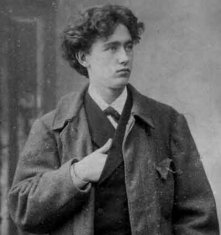
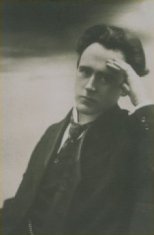

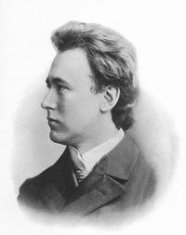
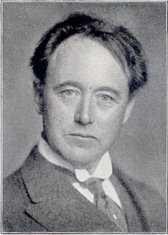
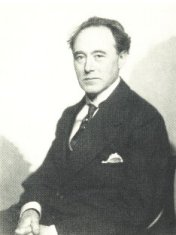
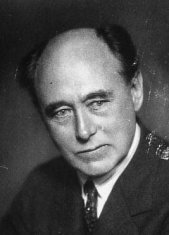
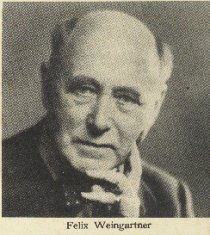
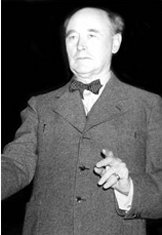
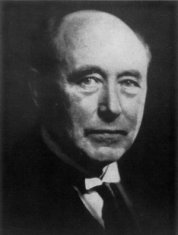
|
|
Source: Wikipedia Website (June 2010)
Contributed by Aryeh Oron (July 2010) |
|
Felix Weingartner : Short Biography | Arrangements/Transcriptions: Works | Recordings |
|
Links to other Sites |
|
Felix Weingartner (Wikipedia)
Felix Weingartner - Biography (AMG)
Felix Weingartner Biography (Naxos) |
More Than the Notes: Felix Weingartner
A Felix Weingartner Tribute -1863-1942 (Classical Recordings) |
|
Bibliography |
|
Christopher Dyment : Felix Weingartner: Recollections & Recordings (Rickmansworth, England: Triad press, 1976)
Raymond Holden: The Virtuoso Conductors: The Central European Tradition from Wagner to Karajan (New Haven, CT: Yale University Press, 2005)
Felix Weingartner: On the Performance of Beethoven's Symphonies and Other Essays (Mineola, NY: Dover Publications, 2004)
Felix Weingartner; Arthur Bles: The Symphony Writers Since Beethoven (London: William Reeves 1971 [1907])
Felix Weingartner; Marguerite Wolff: Buffets and Rewards: A Musician's Reminiscences (London: Hutchinson & Co., 1937) |
|
|